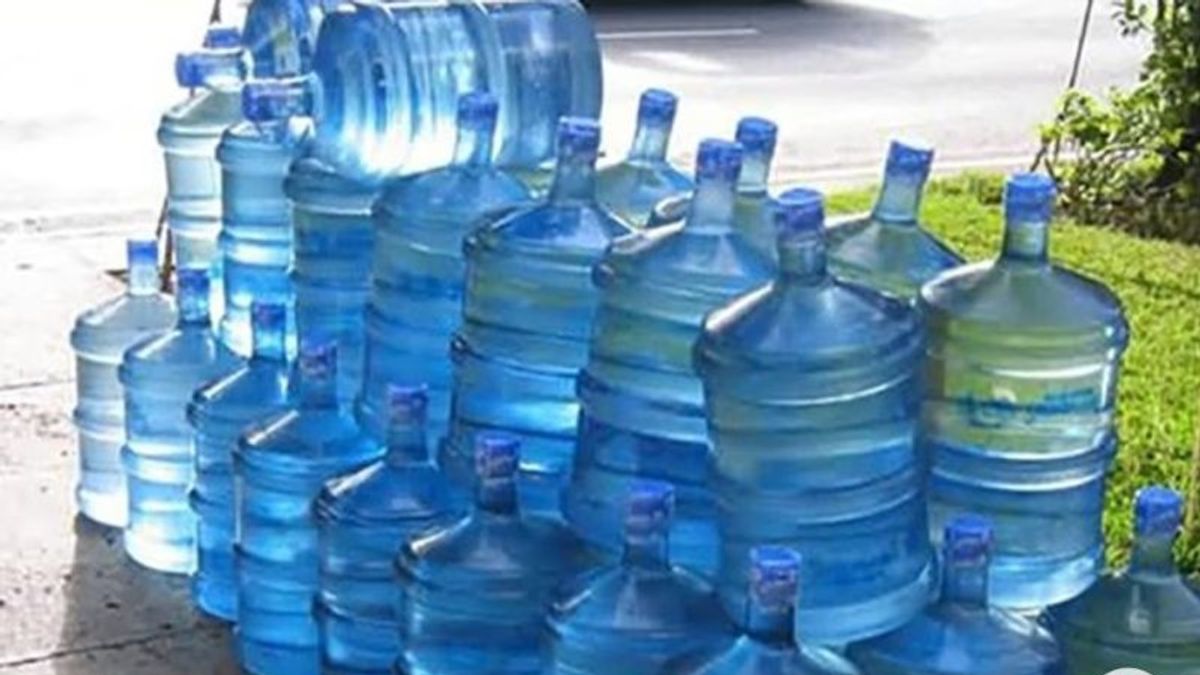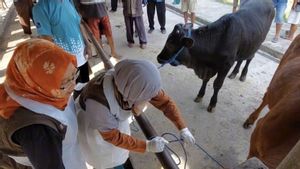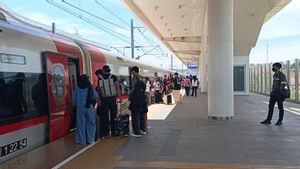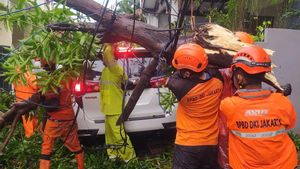JAKARTA – After listening to various inputs from community representatives, the Indonesian Food and Drug Supervisory Agency (BPOM) has completed the harmonization stage of the labeling program for the chemical content of Bisphenol A (BPA) in drinking water packaging.
"The Directorate General of Legislation at the Ministry of Law and Human Rights has issued a Letter of Completion of Harmonization," said BPOM RI Deputy for Processed Food Supervision Rita Endang in a written statement received by Antara in Jakarta, Sunday, January 30.
Rita said the letter was a follow-up to the submission of the Draft BPOM Regulation for the harmonization process with the Ministry of Law and Human Rights on December 15, 2021. The submission was attended by representatives from the Cabinet Secretariat, Ministry of Industry, Ministry of Trade, Ministry of Health, National Consumer Protection Agency, and and related Work Units within BPOM.
In preparing the draft regulation for BPA labeling on drinking water packaging, said Rita, BPOM actively involved relevant stakeholders such as experts and academics from universities, representatives of relevant ministries/institutions, business associations, community organizations, consumers, laboratories, and related work units. in the BPOM environment.
Support for the Draft BPOM Regulation on Processed Food Labels, said Rita, has been supported by the Ministry of Health through the Directorate General of Pharmacy and Medical Devices, the National Consumer Protection Agency (BPKN), the Chemical and Packaging Center of the Ministry of Industry, Food Safety Experts at IPB, Faculty of Administrative Sciences ( FIA) UI, Chair of the Indonesian Consumers Foundation (YLKI), Chair of the Indonesian Breastfeeding Mothers Association (AIMI), Chair of Journalists Concerned for Health and the Environment (JPKL) and Chair of the National Commission for Child Protection.
Rita said BPOM had also listened to input from various related parties, such as a public petition on the website change.org on January 1, 2021 entitled "Ban the use of Bisphenol A (BPA) in all food and drink packaging", "BPOM saves our babies from bisphenol poison. A (BPA)", "Members of Commission IX DPR RI encourage BPOM to issue a ban on BPA on food plastic packaging and gallons".
In addition, input also came from YLKI based on the Public Dialogue regarding the safety of food packaging made from plastic raw materials containing BPA elements together with the Indonesian Cancer Foundation and the Directorate of Nutrition of the Ministry of Health on October 6, 2021.
"During 2021 BPOM has held 27 public dialogues with relevant ministries/agencies, business associations, expert teams, and community organizations," he said.
Rita said the BPA labeling program on drinking water packaging had also gone through the public consultation stage on November 29, 2021, which was attended by the Ministry of Health, BPKN, Ministry of Industry, food safety experts from IPB, FIA UI, Chair of YLKI, Chair of the Indonesian Breastfeeding Mothers Association (AIMI), Chairperson of the Indonesian Breastfeeding Mothers Association (AIMI). Journalist Caring for Health and the Environment (JPKL) and Head of the National Commission for Child Protection.
"The main purpose of this labeling is to protect public health. In addition, it also protects business actors and the government against potential demands from the public in the future," he said.
He emphasized that the government did not prohibit the use of polycarbonate gallon packaging through this policy. "Only for bottled drinking water that has a distribution permit or has no impact on refill drinking water depots," he said.
If gallon packaging products made from polycarbonate can meet the stipulated conditions, said Rita, then the label for circulating products does not need to include "potentially containing BPA". "Inclusion of information can be in the form of stickers or inkjet or other technology as long as it is firmly attached and cannot be easily erased," he said.
He hopes that the policy will encourage business actors to be competitive and innovate to produce safe and quality products.
The English, Chinese, Japanese, Arabic, and French versions are automatically generated by the AI. So there may still be inaccuracies in translating, please always see Indonesian as our main language. (system supported by DigitalSiber.id)









